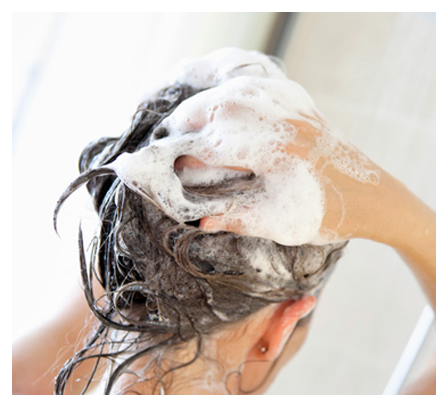Managing dry skin
Tips for taking care of dry skin
Care for your hands
Frequent hand washing and the use of alcohol-based hand sanitisers can cause, or exacerbate, dry skin on the hands:
- Both can damage the skin’s natural barrier properties that normally keep it supple and moisturised.
- Foaming soaps, particularly those containing SLS, are known skin irritants and effectively strip the skin’s natural oils, making problem dry skin even worse.
How to protect your hands:
- Dry your hands thoroughly after washing.
- After washing or sanitising, immediately apply an emollient (skin moisturiser) to trap moisture in the skin, replace lost oils and to restore its natural protective barrier.
- Use a soap substitute instead of normal hand cleansers, particularly one that contains moisturising ingredients to help restore the skin’s natural barrier property.
- A moisturising soap substitute with an added antibacterial agent such as chlorhexidine or benzalkonium chloride can also be beneficial for cracked skin where there is a risk of skin infection.
Avoid SLS
Many soaps, shampoos, body washes and laundry products contain ionic detergents and surfactants. It’s what makes them foamy. These ingredients can be highly irritant for people with problem dry skin. One of the worst culprits is SLS (sodium lauryl sulphate). SLS has been shown to strip the skin’s natural oils, making problem dry skin worse. Try to choose non-ionic products, particularly SLS-free products, most of which are clearly labelled.

Keep a diary
Sometimes, skin conditions seem to flare up out of the blue. That’s why it’s useful to keep a skincare diary, to try to identify any common products, substances or situations that may have triggered an increase in symptoms.
Establish an emollient routine
Use emollients generously and regularly, even when skin doesn’t feel or look particularly dry. It will improve the condition of your skin and reduce itching.
Apply an emollient immediately after a bath or shower. This helps trap moisture in the skin. Remember to pat (not rub) the skin dry before applying. Rubbing can irritate dry skin conditions.
Turn down the heat…
A hot, steamy shower may feel relaxing and can even provide temporary relief from itching. But the hot water can also make eczema symptoms worse, as it dries out your skin. Short showers – in warm water – help your skin absorb moisture without drying it out.
...and stay cool
People with atopic eczema often experience symptoms when they break a sweat, whether that’s due to exercise, hot temperatures or using too many bed clothes.
To help sleep, use light cotton sheets and keep the temperature low during the night.
When exercising, wear loose clothing, towel off during exercise, and shower immediately afterwards.

Dress for comfort
Some fibres are more irritating to the skin than others. Wool is notoriously prickly. Many synthetic fabrics are abrasive and don’t allow the skin to breathe.
Choose natural cotton clothing and bedding where possible. Wash new clothes, including coloured cotton, before wearing them. This will help to reduce any excess, irritating chemicals and dyes.
Need to know more?
For further expert advice on managing dry skin, you can visit:




